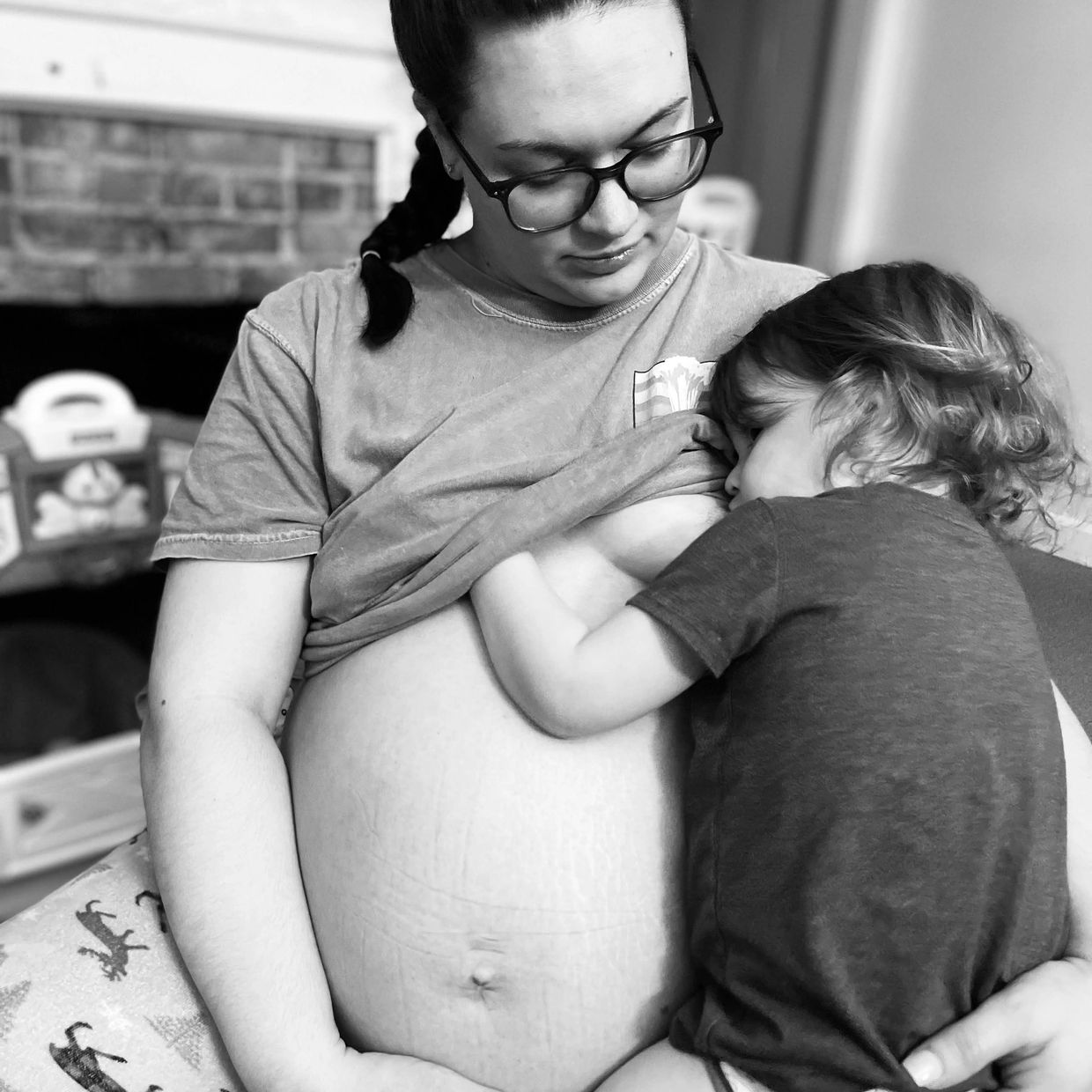What is midwifery care?

Midwife means "with woman".
Traditional midwives have assisted birthing families since the beginning of time. Modern midwives combine traditional wisdom with evidence-based practice. Midwives attend births at home, in birth centers, and in hospitals. In most countries, midwives provide primary care to most families, but in the US, only about 10% of births are attended by midwives. Midwifery care is individualized, holistic, and non-invasive. Midwives are committed to family-centered care and baby-friendly practices. Midwifery care is equally safe and more satisfying than obstetrical care.There are different types of midwives. In Virginia, three types of midwives are licensed: Certified Professional Midwives (CPM), Certified Midwives (CM), and Certified Nurse Midwives (CNM). Certified Professional Midwives are certified by NARM and Certified Midwives and Certified Nurse Midwives are certified by ACNM. Some midwives may choose to not certify due to religious, philosophical, or personal reasons. All types of midwives attend births in the home or birth centers, but only CMs and CNMs may attend hospital births as a caregiver. All midwives should have extensive training in normal pregnancy/birth, complications, and variations of normal.

Is Out of Hospital Birth Safe?
Planned Home Birth is Safe for Most Mothers and Babies Healthy women with qualified care providers, usually midwives, can have safe home births. Home birth reduces:
- risk of infection
- risks from unnecessary interventions
- maternal morbidity rates from complications and interventions
- risks from errors in hospitals
- interference in bonding and breastfeeding from hospital policies
- risks from poor staffing levels in hospitals
- risks of tampering with the baby
Home birth provides:
- safe, familiar and private surroundings for labor and birth
- woman-centered care during pregnancy, labor, and birth
- family-oriented birth with no strangers present
- an opportunity for immediate bonding and breastfeeding
- less disruption and stress for the whole family
- affirmation that birth is a normal and profound life event
Research shows that planned home birth with a qualified attendant is safe for most mothers and babies.---From Citizens for Midwifery

For most families, home and birth center births are equally safe.
You should consider these questions when choosing between home and birth center birth:
- What type of midwife is available in each setting? Care providers of the same credential have the same legal boundaries (i.e CPM, CNM, MD, DO, etc.).
- Where is the birth center located? Transfer time is dependent on many circumstances but mostly distance. Is your home or the birth center closer to your transferring hospital.
- What options are available for birth? Is water birth available? Birth stools? Birth balls? What equipment and supplies must be gathered or purchased? Who will attend the birth? Is there a call schedule or dedicated birth team?
- What is the cost? Are there additional fees not included in the normal package?
- How many births are expected in your due month? What happens if there are more than 1 woman in labor at the same time?
- If a transfer occurs, does the midwife transfer too? If so, how long does she stay?
- What transfer guidelines does the midwife follow?
- Are any home visits done?
- How soon after a homebirth does the midwife leave OR how soon after a birth center birth do families leave?
- Where do you feel most comfortable?

Is homebirth a lot of work?
Home birth offers the benefit of being in your space with your things and the people you love. It is the best option for families that want their children to be present for their birth or meet the baby immediately following the birth.
The preparation that comes with homebirth is no more time consuming than any other type of birth. It's just different. Physical preparation is simply making healthy decisions about nutrition, exercise, and activities. Emotional preparation is learning about birth, researching options, and practicing comfort measures and relaxation techniques. Spiritual preparation involves your typical prayer, meditation, and/or positive thinking exercises, based on your personal belief system. People worry about the size or cleanliness of their home, but if you home is adequate for a baby to live there, it is fine for birth as well. When the day of the birth arrives, your birth team will prepare your home with supplies they bring and those you've gathered to transform it into a temporary birth center. While you are laboring or recovering from your birth your laundry and dishes will be done, postpartum food will be prepared, and the trash will be bagged up. The set up and the clean up of the birth pool, birth stool, bed, or other birthing area will be completed by your birth team, possibly with a little help from willing family or friends that you choose to attend your birth.
Take Back your birth!
Providing individualized and empowering midwifery care to families throughout Southwest Viriginia.
This website uses cookies.
We use cookies to analyze website traffic and optimize your website experience. By accepting our use of cookies, your data will be aggregated with all other user data.